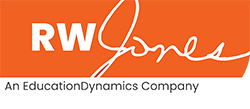We are living through an interesting time in higher education as we, for the first time in history, are seeing a more steady pace of campuses closing their doors. Within the reality of this challenging era, institutions need to find new ways to drive revenue while managing shrinking operating budgets and limited personnel budgets. In order to advance the institution and address financial instability, colleges and universities need to invest in their marketing and communications, which is an institution’s primary driver of reputation, enrollment and engagement. The question becomes, how?
How do you hire the talent you need to truly take a strategic approach to build a school’s reputation and drive revenue if your personnel budget can’t sustain the level of skillset needed to move the needle?
This very question has led many higher education institutions to consider outsourcing their marketing and communications efforts, including leveraging a fractional Chief Marketing & Communications Officer (CMCO). The benefits of such an approach, particularly in terms of cost savings and accessing a high level of expertise, are compelling and deserve exploration.
Cost Efficiency
One of the most straightforward advantages of outsourcing marketing efforts and hiring a fractional CMO is the potential for significant cost savings. Traditional full-time hires come with a suite of financial commitments beyond salary, including benefits, training, and resources needed to perform their role. For many universities, especially smaller institutions or those facing budget constraints, these costs can be prohibitively expensive. In contrast, outsourcing allows for a more flexible, demand-based expenditure.
A fractional CMCO, who works on a part-time or contract basis, represents a significant cost-effective option. These experts can provide strategic oversight and insight into marketing and communications initiatives without the full-time financial commitment. This arrangement enables institutions to allocate their limited personnel budgets more efficiently, directing funds where they are most needed while gaining the talent and skillset of a high-caliber executive.
Access to Expertise
Beyond the financial aspect, outsourcing marketing and communications roles, particularly through a fractional CMCO, grants universities access to a level of expertise and experience that might otherwise be out of reach. Marketing for higher education requires a deep and nuanced understanding of the needs of key stakeholders, from prospective students to alumni and donors. A fractional CMCO brings a wealth of knowledge and skills acquired across different industries and projects, offering fresh perspectives and innovative strategies based on extensive industry experience.
Such professionals are adept at navigating the rapidly changing digital marketing landscape, including social media, top-of-funnel lead generation, brand and content marketing. They can swiftly identify trends, adapt strategies, and implement best practices to ensure the institution’s marketing efforts are both current and effective. This level of skillset is something that many universities may find challenging to secure through traditional full-time hires due to budgetary limitations or the competitive nature of the job market.
Strategic Flexibility
Working with a fractional CMCO also offers strategic flexibility. These professionals can quickly adapt to changing priorities, scale their involvement up or down as required, and provide guidance on a wide range of initiatives. This flexibility can extend to the broader outsourced model where the CMCO can tap into a bench of experts and bring in additional skill sets as needed.
This flexibility and expertise could be used as a long-term engagement or even a fixed-term opportunity to implement critical changes. A strategic use of a fractional CMCO is often to take an interim role for a campus to implement structural or organizational changes while assisting with the recruitment of a permanent executive leader. This approach brings expertise to the institution at the time of building a new approach to marketing and communications, while helping hire the right person to bring it to life.
For higher education institutions navigating the complexities of an integrated approach to marketing and communications, the decision to outsource these efforts and engage a fractional CMCO offers a strategic pathway to not only achieve cost efficiencies but also to enhance their marketing and communications capabilities. By tapping into the high level of expertise and flexible strategic insight that a fractional CMCO provides, universities can more effectively compete and ultimately drive enrollment, engage their constituents, and elevate their reputation.




